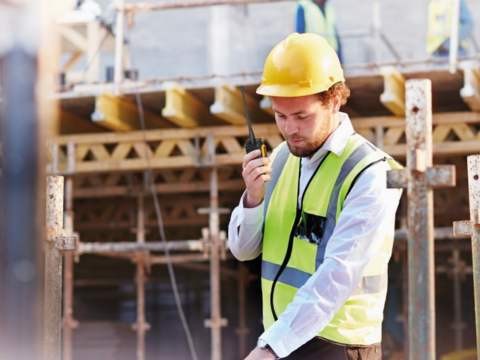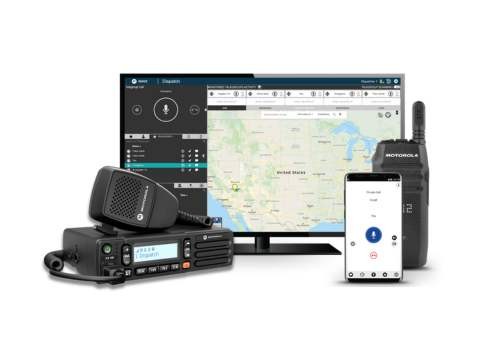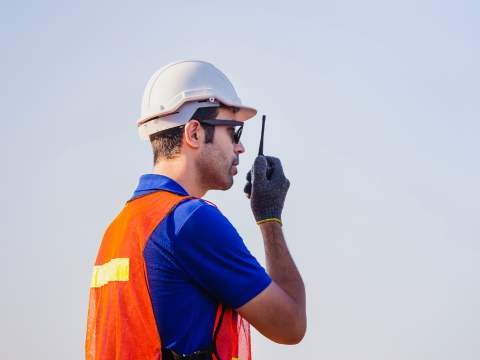How to choose the right two way radio for your business
Two-way radios are essential communication tools in various settings, including construction sites, events, facilities, retail, security, and emergency response. Choosing the right two-way radio can be a daunting task, given the variety of options available in the market.
Firstly before buying a two-way radio, it's essential to understand how they work and the different types and solutions available. Two-way radios use radio waves to transmit and receive messages between two or more users. There are two main types of two-way radios - analogue and digital, and they come in two forms - handheld and mobile.
Here we guide you through the key things to consider when purchasing a two-way radio:
Step 1: Identifying your communication needs
To choose the right two-way radio for your business, first, it’s important to assess your communication needs. Think about the size of your workforce, the type of work you do, and the context of the communication. All of these factors should be taken into account.
Determine your range requirements. If you need specific features, such as GPS, for your business, consider them. Understand the purpose of two-way radios in your business.
Top Things to think about include:
- Range – what is the area your staff will be communicating across?
- Durability – do you need robust or rugged hardware?
- Security – do your conversations need to be encrypted or is this element less important?
- Usability & features – do you have lone workers who will be using the radios? Do you require features such as lone worker alarms or messaging
- Playback – will you need the ability to record and replay messages?
- Durability is essential for two-way radios used in construction sites or warehouses. A rugged two-way radio may be a sensible choice.
- Retailers and businesses in the hospitality sector typically require fewer two-way radios than a university campus. The campus is much larger and thus needs more radios. Radios with a smaller range may provide a more cost-effective solution in this case.
- For those using two-way radios for security reasons, or emergency services, encryption and security may be an important factor.
Step 2: Determine range and frequency requirements
The range of a two-way radio depends on the frequency band used and the terrain and environment. UHF radios are suitable for indoor and urban settings.
VHF radios are ideal for outdoor and rural environments. This ensures efficient and interference-free communication. Licensed radios may be the ideal choice for businesses that operate in large areas or require secure or private communications.
Assess your environment to determine which frequency band is best for your needs. Your radio provider should assist you. They should consider your organisation's environment and location when determining the best type of radio for you.
Step 3: Consider ergonomics and user-friendliness
Comfort, size, weight, and portability are crucial considerations when choosing a two-way radio solution. Assess the working conditions in which the radios will be used. If your business operates in harsh conditions, such as construction sites or manufacturing facilities, you should consider purchasing radios. These radios need to be robust, durable, and reliable in order to perform well in difficult conditions.
Businesses operating in a fast-paced environment, such as hospitality or retail, may need radios with intuitive controls and interfaces. This will make them easier to use.
We partner with the top providers in the market. This ensures each client has access to the most up-to-date technology. It also ensures the technology suits their business needs.
Step 4: Evaluate battery life and power management
Battery life is a critical consideration, as it directly impacts the radio's uptime and operational efficiency. Assess your battery life requirements based on your likely usage and the average duration of your work shifts. Then choose radios with batteries which can last throughout the required duration.
Consider rechargeable and disposable batteries, and consider radios with power-saving features. These features may help extend battery life if necessary.
Step 5: Audio quality and noise suppression
It is essential for a two-way radio to have good sound quality. Otherwise, it cannot be used effectively for communication. Look for radios with noise cancellation and reduction features, hands-free options, and compatibility with accessories to enhance audio clarity.
We collaborate with our customers. We aim to provide the most efficient and cost-effective solutions for each individual requirement. No two requirements are alike, so we strive to tailor our solutions to meet specific needs.
Step 6: Evaluate pricing and budget
Budget considerations play a significant role in choosing the right two-way radio for your business. Evaluate the cost of radios and licensing fees (if applicable). Think about long-term costs, including accessories and batteries. Additionally, consider any maintenance requirements.
Set a realistic budget for your needs and balance price with quality and features. Our managed services programme offers customers the best radio solution for their needs. We ensure that the technology is up-to-date and affordable for both long and short-term business plans.
Cost is important. However, we should also consider the long-term investment. To do this, we need to assess the impact of improved communication on productivity, safety, and operational efficiency.
Step 7: Researching brands and reviews
Research reputable two-way radio providers before making a final decision. Alternatively, consult with professional experts in radio communication solutions. Also, research into reputable brands and manufacturers.
You can also read customer reviews and testimonials, to gain insights from businesses in similar industries. As these businesses have already adopted two-way radio systems, they can share their knowledge and provide advice to help others make better decisions.
In Summary
Choosing the right two-way radio is crucial for effective communication, but you don’t need to go it alone. Our experts at 2826 have decades of experience providing leading two-way radio solutions that are tailored to our customer’s needs.
We will help you to consider your specific needs, range requirements, audio quality, battery life, ergonomics, and budget when making your decision.
Contact one of our team today for an informal chat to discuss your challenges and see what solutions are available.
Related
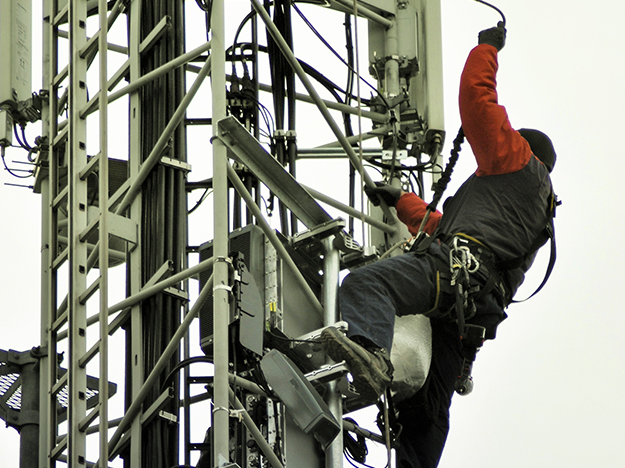
How Do Two Way Radios Work?
Two way radios are a type of radio system that allows communication between two or more users over a distance. In this article we will explain how they work and highlight some of their key features.
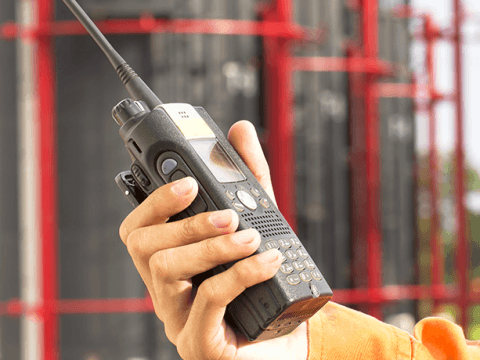
Instant Push to Talk Communications
When an answer is needed, an order is delayed or a safety situation arises, nothing is faster than push-to-talk, instant communication using a Digital Mobile Radio solution.

